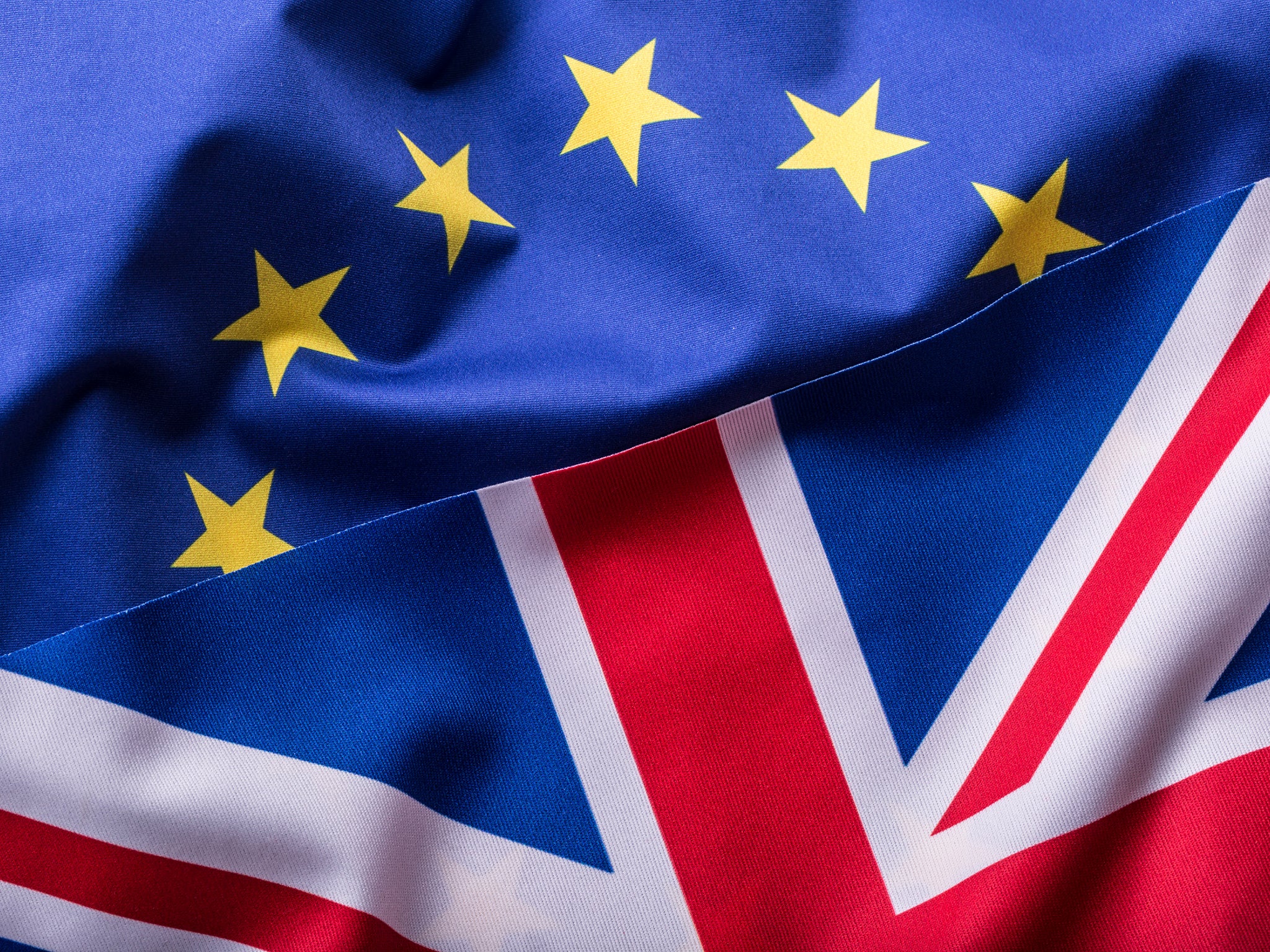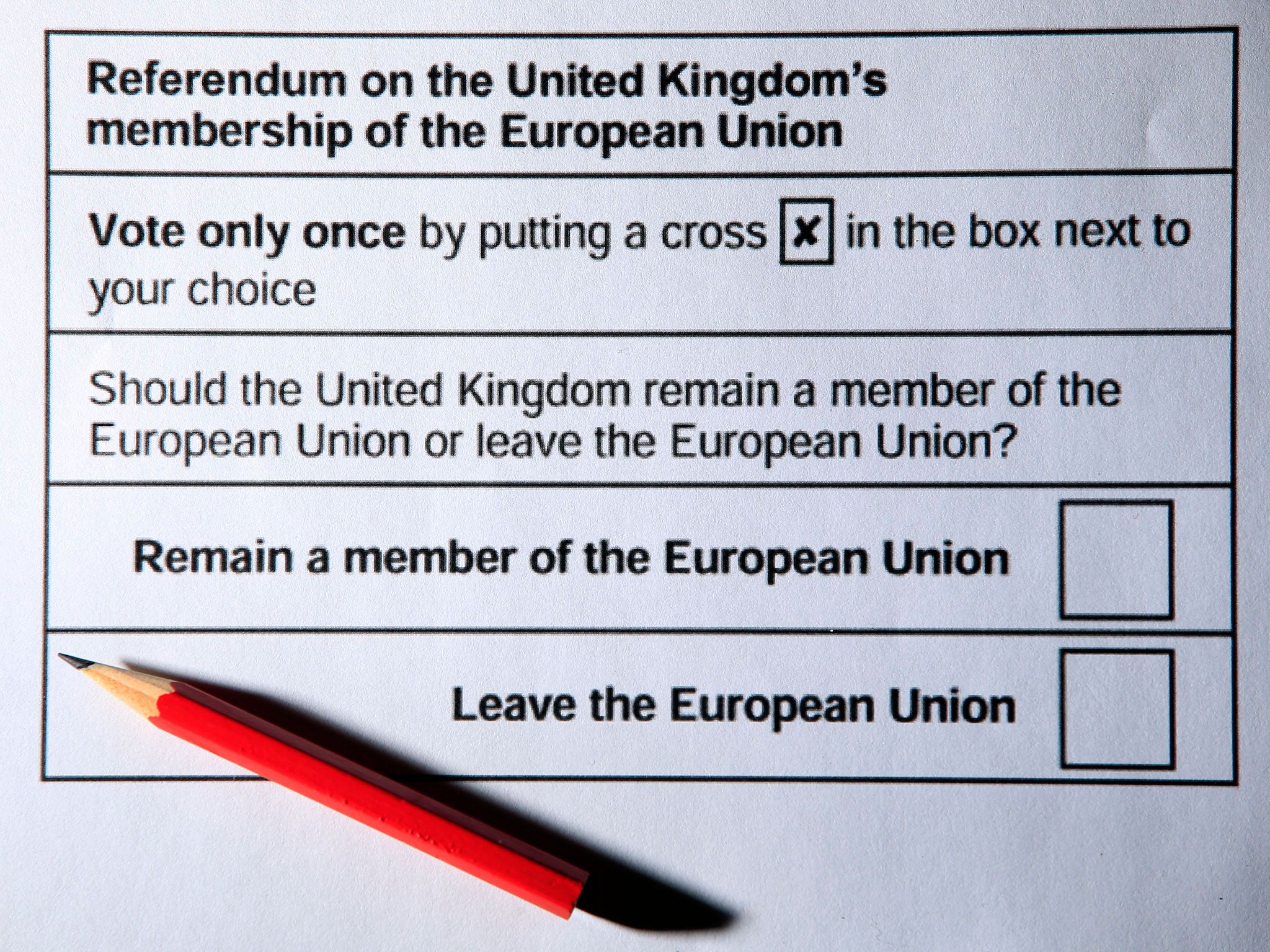EU referendum: Doctors warn Brexit could harm patient care and public health
They said benefits to staying in the EU included access to billions of pounds worth of European research funding and world-leading quality checks on medicine

Your support helps us to tell the story
From reproductive rights to climate change to Big Tech, The Independent is on the ground when the story is developing. Whether it's investigating the financials of Elon Musk's pro-Trump PAC or producing our latest documentary, 'The A Word', which shines a light on the American women fighting for reproductive rights, we know how important it is to parse out the facts from the messaging.
At such a critical moment in US history, we need reporters on the ground. Your donation allows us to keep sending journalists to speak to both sides of the story.
The Independent is trusted by Americans across the entire political spectrum. And unlike many other quality news outlets, we choose not to lock Americans out of our reporting and analysis with paywalls. We believe quality journalism should be available to everyone, paid for by those who can afford it.
Your support makes all the difference.Britain’s EU membership has been good for the nation’s health, helped guarantee patient safety and supplied thousands of frontline staff for the NHS, leading medical organisations have said.
In a major intervention in the EU referendum debate, the Royal College of Physicians (RCP), the doctors’ professional body, representing 30,000 medics, has warned that Brexit could harm patient care and public health.
Meanwhile, the British Medical Association (BMA), with nearly 150,000 members, despite remaining officially neutral, has published a document on the EU for doctors, which lists numerous benefits of Britain’s membership for the NHS, the medical profession and public health and only a handful of drawbacks.
The news that leading doctors are set to overwhelmingly reject a Brexit vote will be a blow to the Leave campaign, which put the NHS centre-stage with a pledge to redirect £5.2bn of Britain’s annual EU spending to the health service in the event of Brexit.
Chief Secretary to the Treasury Greg Hands said the pledge was “totally dishonest”.
Benefits of staying in the EU identified by the RCP and the BMA included access to billions of pounds worth of European research funding, and world-leading quality checks on medicines and healthcare products that have helped keep patients safe.
The BMA’s document also highlighted that 30,000 doctors, 11 per cent of the workforce in the UK, were trained in another European Economic Area state (the EU, plus Iceland, Norway and Lichtenstein) and praises the principle of free movement of professionals that the EU enshrines.
EU laws have also been instrumental in cracking down on tobacco companies, it says, with new bans on flavoured tobacco products, which encourage young people to smoke, due to come into effect in 2020. Further new EU proposals to force food companies to lower levels of harmful trans fatty acids in their products would also be at risk in the UK if we vote to Leave.
While pursuing a policy of official neutrality, Dr Mark Porter, the BMA’s chair of council said the referendum was a “momentous issue” with “huge implications for both the nation and indeed the medical profession”.
The BMA’s document for members also outlines some concerns about EU influence, including the implications of the EU/US Transatlantic Trade and Investment Partnership deal for the NHS. Parliament recently voted to exclude the NHS from the TTIP deal.
The RCP encountered similar concerns among members over TTIP, but its president, Professor Jane Dacre, said that the strong balance of opinion was in favour of the UK’s continued EU membership.
“The RCP call for views has demonstrated support for the UK to remain in the European Union for health reasons,” she said. “It has highlighted the considerable health benefits that EU membership brings to this country as well as the harm to patient care and public health that a withdrawal from the EU could entail.
“The EU is not without its faults, but there is a consensus that solutions are best found through continued EU membership, given that the health benefits of remaining in the EU outweigh the disadvantages of leaving.”
Professor Sir Simon Wessely, president of the Royal College of Psychiatrists, who submitted evidence to the RCP, said: "The survival of the NHS and its capacity to improve hinge on three core needs: more money, more people and more research. Each of these will be negatively impacted should we leave the EU.”
It follows warnings over the consequence of Brexit from NHS England’s chief executive Simon Stevens and from 75 per cent of hospital bosses who said that leaving the EU would risk a staffing crisis in the health service. In total, around 130,000 citizens from other EU countries work in the NHS.

Despite concerns over the future of the NHS after Brexit, Leave campaigners have made the health service a key part of their campaign. While initially suggesting that all of the UK’s EU contributions could be spent on the health service if we left the EU, Vote Leave leaders Boris Johson, Michael Gove and Gisela Stuart said that the Government could instead redirect £100m a week to the health service. Vote Leave has also warned over the impact of immigration on the health service – an argument countered by Remain campaigners who point out that immigrants are likely to be young and fit and require less healthcare, and that growing pressures on the NHS have more to do with an ageing population than migration.
"As our population grows, and as we all live for longer, so the pressures on the NHS are set to grow,” the Vote Leave leaders said in a statement. "One of the best ways to protect, and to strengthen, the NHS for the people of this country is to use some money we currently spend on EU membership to invest in improving healthcare.
"The government should use some of the billions saved from leaving the EU to give at least a £100m per week cash transfusion to the NHS."
But Mr Hands hit back, saying that leaving the EU would lead to an economic downturn that would have consequences for public spending.
"Doctors and nurses want to stay in Europe because they understand that quitting the single market would damage the NHS by shrinking the economy,” he said.
Join our commenting forum
Join thought-provoking conversations, follow other Independent readers and see their replies
Comments